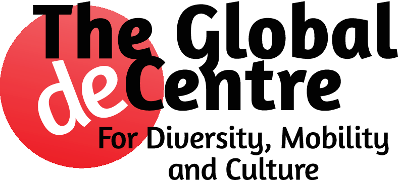Network of scholars from across the world
The Global (De)Centre (GDC) is a platform that brings together a growing network of scholars from across the world who are committed to producing new knowledge and using different epistemologies and methods by working collaboratively with a broad range of partners. The intellectual questions that unite us fall under the broad umbrella of migrating people and migrating cultures. We want to create new conversations that more effectively capture contemporary sites of encounters between mobile and non-mobile people of different races, ethnicities, religions, and sexualities; the national and transnational institutions and cultural products and representations that arise in response; and to identify policies and politics that can create more successful diverse societies.
Doing so requires going beyond post-colonial and critical theory by bringing in new ideas and epistemologies from around the world and by moving beyond parts of the Euro-American and critical canons while refashioning others. We are not suggesting throwing the whole baby out with the bathwater. But, from our perspective, mainstream, post-colonial, cultural studies, and critical theories have not been decolonized nor decentered enough. More importantly, they stop too often at deconstruction without charting a path toward reconstruction and beyond.

